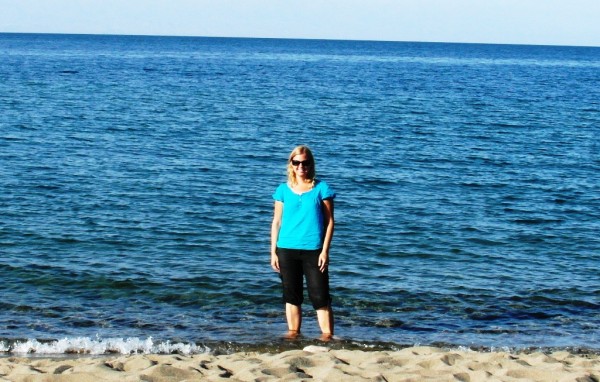
I recently wrote a post for BootsnAll.com about why a “gap year” should come to America. I explained how, as I traveled around the world during my recent career break, I often encountered travelers from other countries who have traveled a lot more than I have. Whether they hailed from Australia, New Zealand, the United Kingdom or one of a number of other European countries, they all had one thing in common: they took time to travel long-term and doing so was seen as completely normal in their home country.
Such a mentality is not yet the norm in the United States.
While gap years are common in other developed countries, we just haven’t yet embraced the idea of abandoning the typical high school-to-college-to-climbing the career ladder route. I personally took the same route, following it for ten years before I finally decided to break free and move in another direction – and when I did, I felt like most people I told thought I was crazy.
That reaction, combined with my personal career break experience, is why I am now involved with Meet, Plan, Go! – an organization devoted to inspiring people to travel long-term while providing them with the resources to do so.
At Meet, Plan, Go!, our goal is to see a career break on every resume – and here’s why:
1. Increase happiness and productivity.
Compared to workers in other developed countries, Americans work a lot. The United States is one of the few developed countries that does not have a national vacation policy. While countries like Austria, Germany and the United Kingdom enjoy between 20 and 35 government-mandated days off each year, Americans get exactly zero. Most companies offer only two weeks’ vacation time but even then, many choose not to use all of their days. And those who do hit the road often don’t disconnect, checking emails and even participating in meetings remotely. They don’t truly take a break. I should know – I was one of those, tied to my Blackberry even as I was floating down the Nile in Egypt.
But by not taking time off, we are likely to burn out and resent our jobs while our productivity suffers. By welcoming the idea of career breaks to corporate culture, employers are likely to find happier, more engaged and more productive workers when they return.
2. Develop new skills.
Traveling abroad allows you to develop and hone skills in a way that just isn’t possible while working 9-to-5. Improve intercultural communication skills by living with local families. Hone your negotiation technique by haggling in a foreign language. Refine existing professional skills by volunteering or even working abroad. Employers in other countries don’t look at a career break as an unwelcome gap on a resume – they see it as a chance for employees to gain experience and become well-rounded, valuable employees.
“Most employers see a gap year as a great way to discover the uniqueness of the person they’re interviewing,” says UK native Flora Baker. “If they’ve spent the year working full time it shows a sense of dedication; a year travelling around the world shows an adventurous and independent spirit. All of these options also demonstrate the candidate’s confidence and a clear sense of growth gained by spending a year making independent decisions about how they want their life to go.”
Linda McCormick of Northern Ireland adds, “[i]f you want to make a good impression on potential employers, being able to say you’ve worked in another country is always a plus”
The same is true in New Zealand. “Employers view a gap year as a positive in New Zealand,” says Kiwi Bethaney Davies. “Chances are you’ve come back from your gap year having gained valuable skills and experience. It’s a very common occurrence amongst 20-something Kiwis – it would almost be strange NOT to have taken a gap year or two.”
American companies need to adopt this mindset as well.
3. Save money.
I know, it sounds crazy to say you can save money by traveling, but it’s certainly possible. In fact, for workers who have been laid off during the economic downturn, this may be the perfect opportunity to see the world. With no mortgage or car payment and no monthly utility bills, your only real expenses will be transportation, accommodation and food. By traveling slowly and in cheaper destinations like Southeast Asia or Central America, you will likely spend just a fraction of what you did back home. I traveled through a mix of expensive and inexpensive countries and spent around half of what I would normally spend in a given year. And, if you pick up work freelancing or teaching English while you’re on the road, you can come out ahead – and build some new skills to add to your resume.
4. Expand your world view.
While we may not want to admit it, Americans lead fairly sheltered lives and, as a result, generally have a poor understanding of what is really happening in the rest of the world. Our high school history classes might cram all of world history into a single year or even a single semester, meaning students get just a brief overview of events without really understanding their causes and impact. I learned more about World War II and the subsequent Cold War traveling through the Baltics, Belarus and Poland than I ever did in school (and I majored in Russian & East European Studies in college!). And I was amazed to meet people in places like Armenia and Azerbaijan who knew more about American history and literature than I did.
We are also brainwashed by the media in the United States to think the rest of the world is a scary and dangerous place (okay, brainwashed might be a strong word, but you get my drift). In reality, most people are inherently good and I often felt safer traveling abroad than I sometimes do in my adopted hometown of Chicago. Traveling long-term allows you to really develop relationships and immerse yourself in local cultures. By doing so, you see that, despite religious or cultural differences, we all are a lot more alike than you might think.

5. Discover your passions.
We tend to be conditioned in the United States that we need to go to high school, move on to college, major in something useful, get a job and work our way up the ladder. But who really knows what they want to do when they are only 20 or 21? Taking a career break can expose you to new cultures, new ideas and new ways of life. It can help you discover passions you never knew you had – and that you might even turn into a new career. “You will learn how you cope on your own in situations that you might never have imagined, and you will be the better for it,” says UK native Laurence Noah. “It’s a great fast track way to learning about yourself, and can help give you the time and space to get perspective on your life, and what you might want from it going forward.”
By the time I was in high school, I thought I knew 100% that I wanted to go to law school and be a lawyer. At no point in high school or college was I really exposed to any other possible paths. Now that I have returned from a year of traveling, I am considering multiple possibilities, all of which would incorporate my international experience and knowledge and none of which were even on my radar ten years ago.
I know a lot of people reading this may be hesitant.
Indeed, the most common refrain I have heard over the last couple years has been “I wish I could do what you’re doing, but…”
It is time to move past the “but.” If taking a break to travel is something you really want to do, it is 100% possible. I am not saying it is easy. If you have been following along with my journey or if you go back and read some of my posts from before and during my trip, you will see I ran into plenty of obstacles. But, if you make it your top priority, you can do it. And no matter how hard it may be, the benefits will far outweigh the burdens.
If you are in the Twin Cities area on October 16, I hope you’ll come out to Meet, Plan, Go! Minneapolis to hear me and nearly a dozen other former career breakers and travel experts share our stories and answer your questions about taking a career break to travel.
Not in Minnesota? Check out one of the other Meet, Plan, Go! events across North America: Austin, Boston, Chicago, New York, San Diego, San Francisco, Seattle, South Florida and Toronto.


